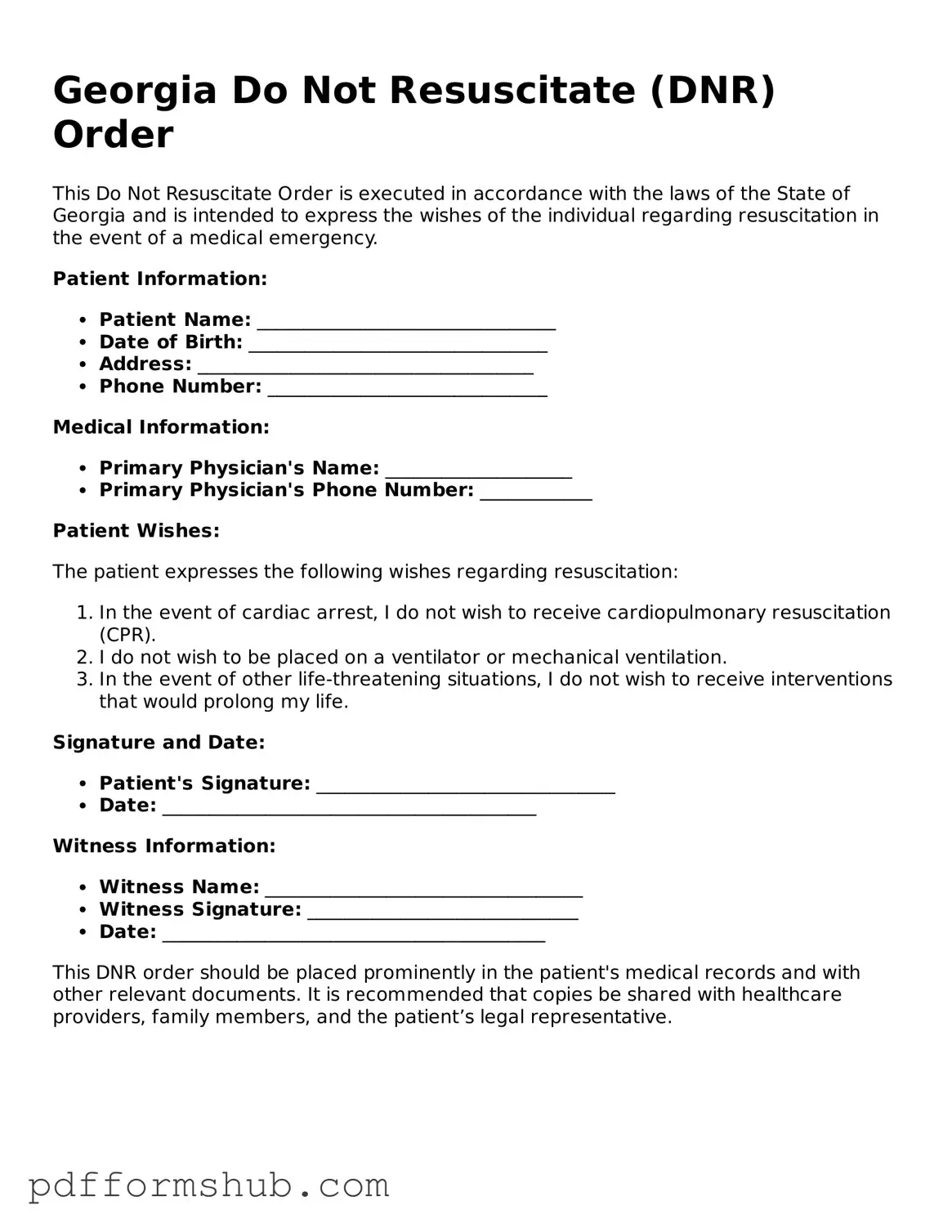Attorney-Verified Do Not Resuscitate Order Form for Georgia State
A Do Not Resuscitate (DNR) Order in Georgia is a legal document that allows individuals to refuse resuscitation efforts in the event of a medical emergency. This form is crucial for those who wish to express their preferences regarding life-sustaining treatments. Understanding how to properly fill out and implement this form can ensure that your wishes are honored when it matters most.
To take control of your healthcare decisions, consider filling out the DNR Order form by clicking the button below.
Customize Form

Attorney-Verified Do Not Resuscitate Order Form for Georgia State
Customize Form

Customize Form
or
Free PDF Form
Short deadline? Complete this form now
Complete Do Not Resuscitate Order online without printing hassles.